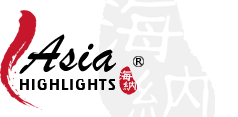Vietnam's rainy season varies by region. The north (Hanoi, Halong Bay) sees rain from May to September, the south (Ho Chi Minh City, Mekong Delta) from May to October, and the center (Da Nang, Hoi An) from September to December.
Does That Mean You Should Avoid Vietnam During the Rainy Season?
Not necessarily! No matter when you go, you can always find a sunny spot somewhere in Vietnam!
- May to August is best for central Vietnam, while November to December is ideal for the north and south.
- If you're visiting in September or October, northern Vietnam is your best bet as the rain starts to fade.
While rain may sound like a hassle, it also means fewer crowds, lower costs, and lush landscapes. With the right plan, you might even love Vietnam's rainy season! If you want to travel across the country with minimal rainfall, visit it between January and April.

North Vietnam's Rainy Season: Mid-May to Mid-September
Northern Vietnam experiences heavy rainfall and high humidity from mid-May to mid-September, with July and August being the wettest months.
Expect heavy rain, sometimes lasting days, and occasional typhoons bringing strong winds and rough seas in Halong Bay. Flooding can also occur in Hanoi and the Red River Delta, particularly in the peak months.

Things You Can Do
Despite the rain, northern Vietnam's landscapes become incredibly lush. Cultural experiences such as exploring Hanoi's Old Quarter or visiting the ancient temples in Ninh Binh remain unaffected by the rain.
Sapa's rice terraces from June to August are breathtaking, as they fill with water and reflect the sky like giant mirrors. Mist-covered Hmong villages, such as Cat Cat and Ta Van, feel like hidden gems in the clouds. Light trekking is still possible on paved routes like Lao Chai to Ta Van.
 Ninh Binh in June
Ninh Binh in JuneWhat to Avoid
Long treks, such as climbing Mount Fansipan, can be dangerous due to slippery trails and poor visibility. Riding a motorbike through the northern highlands, like the Ha Giang loop, is also risky, as roads become muddy and visibility is often low.
In Halong Bay, typhoons between July and September may cause cruise cancellations, so it's best to book with a company that offers flexible rescheduling.
 Halong Bay in Rainy Days
Halong Bay in Rainy DaysCentral Vietnam's Rainy Season: September to December
The northeast monsoon brings heavy rains from September to December in central Vietnam, often leading to consecutive days of overcast weather.
October and November are peak flood months, turning Hoi An's charming streets into Venice-like canals. Typhoons frequently hit the central coast, sometimes resulting in beach closures and disruptions to outdoor activities.

Things You Can Do
Even in the rainy season, Hoi An's Ancient Town remains a charming place to explore, with its lantern-lit streets and cozy cafés. Rainy days are perfect for indulging in Hoi An's tailor shops, making your own lanterns in a local workshop, or creating typical Vietnamese cuisine with your private chef.
The region's historical sites, such as the Imperial City of Hue and My Son Sanctuary, can still be enjoyed with an umbrella in hand.
 My Son Sanctuary in a Rainy Day
My Son Sanctuary in a Rainy DayWhat to Avoid
Outdoor activities in this region can be heavily impacted by rain. Ba Na Hills, a popular theme park near Da Nang, is not suggested, as its cable car operations may be suspended due to strong winds, and fog often obscures the scenic views.
Beach activities in Da Nang and Hoi An, such as swimming or surfing, are not ideal, as rough seas and high winds make conditions unsafe.
The Marble Mountains, with their steep, often slippery steps, are also risky in wet conditions.
 Da Nang in December
Da Nang in DecemberSouth Vietnam's Rainy Season: May to October
Southern Vietnam's rainy season lasts from May to October, peaking in August to early October.
Unlike the prolonged rains in the north and center, showers in the south are usually short but intense, typically occurring in the afternoon or evening and lasting one to two hours. Just keep an umbrella or light rain jacket handy, and you're good to go!

Things You Can Do
Despite the rain, Ho Chi Minh City remains vibrant, with plenty of indoor attractions like the War Remnants Museum, the Cu Chi Tunnels, and Ben Thanh Market.
In the Mekong Delta, the rainy season creates unique floating markets, such as Cai Rang, where boats overflow with fresh produce.
It's the perfect time to feast on Vietnam's juiciest tropical fruits—think durians, mangosteens, and rambutans bursting with flavor!
What to Avoid
Some activities are best skipped during the rainiest months. Cycling through the Mekong Delta can be challenging due to waterlogged roads.
Island destinations like Phu Quoc are not ideal for snorkeling or diving, as the water becomes murky, reducing visibility.
Ho Chi Minh City's drainage system also struggles with heavy rain, leading to occasional street flooding, so it's best to avoid walking in low-lying areas after a downpour.
 Phu Quoc Island in a Cloudy Day
Phu Quoc Island in a Cloudy Day Is the Rainy Season Worth Visiting in Vietnam?
Since Vietnam has different rainy seasons across regions, you can always find a dry place to visit. But if you must travel during the rainy season in a specific region, it's not all bad. Even in the wettest months, there's a good chance you'll have half the time with no rain.
While some outdoor activities may be limited, cities and cultural sites remain open, and lush landscapes are at their most vibrant. Additionally, you'll enjoy fewer crowds and lower prices, saving from US$200–400 on a 1–2-week-long tour. Free hotel upgrades might be possible, too!
If you're traveling during the rainy season, here's how to make the most of it:
- Get travel insurance to cover weather-related cancellations.
- Plan a flexible itinerary with indoor options and backup activities.
- Book hotels and tours with good cancellation policies to avoid losing money due to bad weather. (Like us, see our free cancellation policy)
- Pack Smart: Bring quick-dry clothing, waterproof shoes, and a light rain jacket to stay comfortable.
Rain or Shine, Travel Stress-Free with Us
Planning a trip to Vietnam during the rainy season? Whether it's a romantic escape or a family adventure, Asia Highlights will design a personalized itinerary that maximizes good weather and minimizes disruptions. With expert planning and 24/7 support, we handle the challenges so you can enjoy Vietnam stress-free!
Get inspiration from more travel guides:
Monthly Weather and Travel Information for Vietnam
Learn about the weather in Vietnam for 12 months and find out the best places to visit each month.
Get Inspired with Some Popular Itineraries
At Asia Highlights, we create your kind of journey — your dates, your destinations, at your pace. You can have any trip tailor made for your travel.



